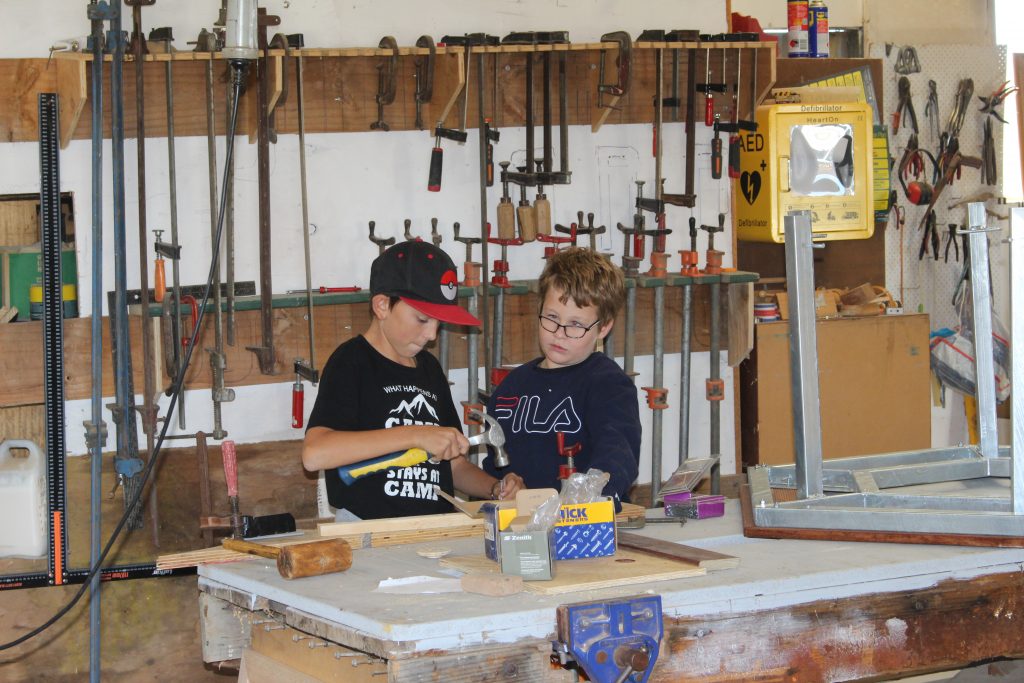Community stories: 23 February 2022
When COVID lockdowns hit, it created issues for Boys to the Bush, a program that provides support for disadvantaged youth from a variety of regional and rural communities in NSW.
Distance learning and daily life disruptions created challenges. Camps were cancelled and the Boys to the Bush program was impacted at a time when disengaged senior school and school leaver youth required work experience and guidance the most.
CEO and Director Adam DeMamiel said restrictions impacted the way Boys to the Bush normally runs its program, which involves “packing lots of kids in utes and minivans to head out to workplaces and farming properties for MENtoring programs.”
A FRRR Westpac Rural Communities Grant of $10,000 helped ensure the boys, aged 10 to 19, could continue to connect and learn life skills, as well as earn accreditation toward employment in their community when restrictions lifted.
The funding enabled them to purchase workshop equipment for applied construction and maintenance projects in Albury, including much needed power tools, a chainsaw and a hydraulic log-splitter. The equipment is used for building furniture, making repairs to infrastructure and furniture and for their woodcutting social enterprise, ‘Tooled for (Winter) fuel’.
The program gives the young people an opportunity to visit properties in the region to cut trees, bringing the wood back to the Boys to the Bush shed to be split and stacked. The wood is both sold to community members as well as donated to people in need. As their skills develop, they can work on other woodworking projects for themselves and gifts.
“These tools have been used regularly by over 200 kids in the past 12 months alone. This is more than double what we expected.
“Tooled for Fuel” significantly boosts our capacity to provide a safe environment for working on applied construction and maintenance projects. We can welcome guest mentors to demonstrate techniques and fundraise for a sustainable future for Boys to the Bush.
The program helps the young people participate and become more engaged in their community, which Mr DeMamiel said can play a major part in turning lives around and has potential to end generational cycles of disadvantage.
“I am most proud of our ability to give back to the community. Instead of us asking the community to support us all the time we are able to in a small way donate things of value back,” Mr DeMamiel said.


